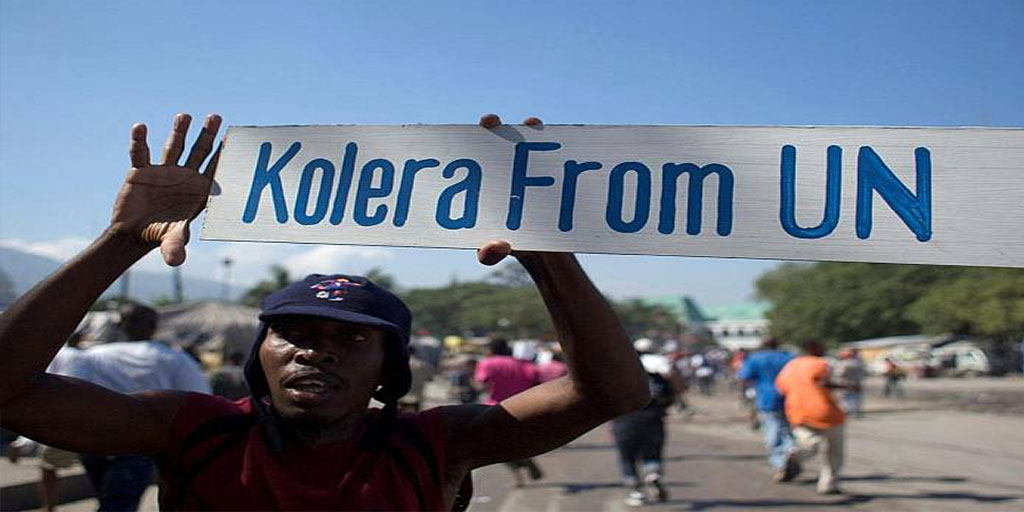
2nd July 2019
A report recommends that the UN adopt additional assistance measures for cholera victims in Haiti
[apss_share]
By Caribbean News Now

NEW YORK, USA – Lawyers Without Borders Canada (LWBC), in collaboration with the Interuniversity Institute for Research and Development (INURED), recently made public a study on assistance to cholera victims in Haiti.
The epidemic, which had devastating health, social and economic consequences in the country following the 2010 earthquake, has so far killed nearly 10,000 people, while more than 820,000 people have been infected.
In apologizing for the UN’s role in the cholera epidemic and its spread in Haiti, Secretary-General Ban Ki-moon unveiled the New United Nations Approach to Cholera in Haiti in 2016. In the report, he highlighted the importance of conducting local consultations and further assessments to determine whether the material and financial assistance program for cholera victims could include an individual component, such as monetary payment to cholera victims.
Three years later, the United Nations initiated a community assistance program, but additional consultations and assessments for a possible individual assistance program were not carried out.
“This study fills a gap in the debate on the best ways for the UN to redress the damage caused by the cholera epidemic,” said Pascal Paradis, Executive Director of Lawyers Without Borders Canada. “It is the first to combine a rigorous field survey on the needs and expectations of victims with an in-depth analysis of the feasibility of individualized assistance to cholera victims, in the light of international human rights standards, medical considerations and comparative experiences with other large-scale assistance programs.
“While the community-based approach can reach a large number of victims, it can be complemented by individual assistance for those most seriously affected by the cholera epidemic.”
The voice of victims must be at the heart of the process
Nine years after the introduction of cholera in Haiti, this study presents useful information based on INURED’s field survey of victims, evidence and interviews with national and international experts.
The study shows particular that:
- The needs, expectations and concerns of cholera victims must be at the heart of any form of material or financial assistance provided to them;
- The victims consulted for the study want a UN response that would combine both community-oriented projects and assistance targeting the specific needs of those most affected by cholera;
- It is possible to implement a simple, rigorous, transparent, inclusive and contextually relevant individualized assistance mechanism that would complement the collective approach currently favoured by the United Nations.
The study is being presented to UN experts and representatives and other key persons in New York. It will also be presented to Haitian authorities, victims and civil society organizations in Haiti in the coming weeks.
[apss_share]



